
US Marine charged with sexual assault weeks after missing teen was found in Camp Pendleton barracks
A US Marine at California's Camp Pendleton has been charged with sexual assault weeks after a missing 14-year-old was discovered in the military base's barracks, according to a charging document.
2023-08-17 16:45

US summit with South Korea, Japan, will seek to lock-in progress -US official
By David Brunnstrom and Michael Martina WASHINGTON A U.S. summit with Japan and South Korea on Friday will
2023-08-17 04:21

Little warning, few escape routes, phones knocked out: The chilling similarities between the Maui and Paradise fires
A fire with so much loss and destruction shouldn't have precedent, but recent history has proven otherwise.
2023-08-17 01:51
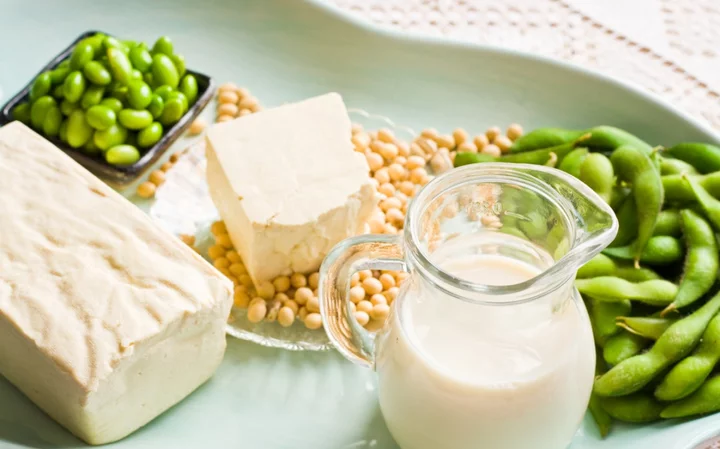
Vegan diet can reduce hot flashes associated with menopause, study suggests
Plant-based diets with a sufficient amount of soy can reduce hot flashes while also aiding weight loss, according to the Women’s Study for the Alleviation of Vasomotor Symptoms (WAVS) trial. A study published by the North American Menopause Society in the journal Menopause found that a diet intervention is about as effective as hormone replacement therapy for reducing menopausal hot flashes, without the associated health risks. “We do not fully understand yet why this combination works but it seems that these three elements are key—avoiding animal products, reducing fat, and adding a serving of soybeans,” explained lead researcher Neal Barnard, MD, president of the Physicians Committee and adjunct professor at the George Washington University School of Medicine. “Our results mirror the diets of places in the world, like pre-Westernized Japan and modern-day Yucatán Peninsula, where a low-fat, plant-based diet including soybeans is more prevalent and where postmenopausal women experience fewer symptoms.” To conduct the study, researchers recruited 84 postmenopausal women that reported episodes of hot flashes two or more times per day. Participants were randomly assigned into two groups. One group was an intervention group that was on a low-fat vegan diet consuming half a cup of cooked soybeans daily, while the other was a control group with no dietary changes for 12 weeks. After 12 weeks, researchers found that those on a vegan diet had a 88 per cent decrease in moderate to severe hot flashes and had lost an average of eight pounds. This is about the same success rate as hormone replacement therapy (HRT), which is usually 70 to 90 per cent effective against hot flashes. The trial was split into two parts, the first being published in 2021 and the second being published this year. It successfully addressed the point that there may be positive changes seen in menopause relief due to seasonal temperature variations. The first trial, which was conducted during the autumn season raised the question of whether this symptomatic improvement might have been attributed to cooler temperatures. But women who began the study as the weather warmed up in the spring had the same benefit, ruling out the effect of the temperature outside. “These new results suggest that a diet change should be considered as a first-line treatment for troublesome vasomotor symptoms, including night sweats and hot flashes,” explains Dr Barnard. Dr Barnard and the team agree said their results not only support putting diet and lifestyle at the forefront of the conversation with hot flash relief during menopause but also for other common complications such as weight gain and chronic disease implications. “This study demonstrates the effectiveness of a dietary intervention for menopausal symptoms,” Dr Barnard said. “As well, it is precisely the diet that would be expected to reduce the health concerns of many women reaching menopause: an increasing risk of heart disease, breast cancer, and memory problems.” The findings are published in the journal Menopause. Read More What are the symptoms of menopause and how can they be relieved? What’s the link between the menopause and anxiety? Menopause affecting your mental health? Experts reveal what to do What I gained (and lost) by walking 10,000 steps each day for 5 months Raven-Symoné details cosmetic surgeries she had before she turned 18 Nearly half of US adults are interested in taking weight loss prescription drugs
2023-08-16 17:22
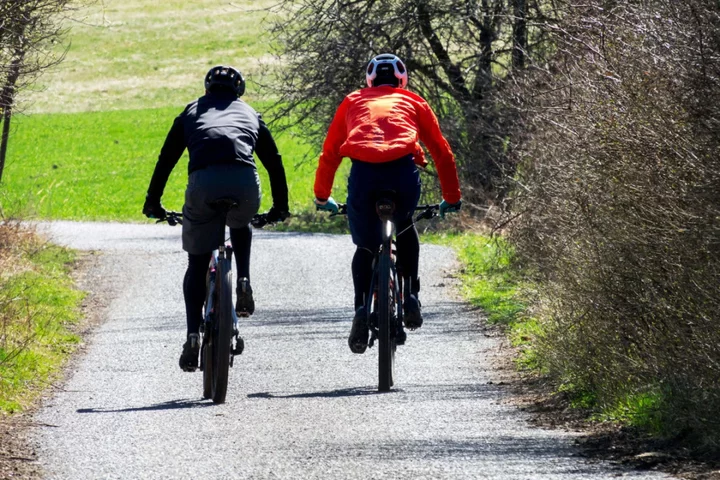
Men who cycle, jog or swim could cut risk of nine cancers – study
Male joggers, swimmers and cyclists could be cutting their risk of nine cancers, a new study suggests. Researchers found that men with good cardiorespiratory fitness are far less likely to go on to develop cancers of the head and neck, stomach, pancreas, liver, bowel, rectum, kidney, lung and oesophagus. Cardiorespiratory fitness refers to a person’s ability to do aerobic exercise, such as running, cycling and swimming for sustained periods, or even to climb stairs. The new study, published in the British Journal of Sports Medicine, saw experts from Sweden track just over a million men for an average of 33 years. The men involved in the study were conscripted to military service in Sweden between 1968 and 2005. At the start of their conscription the men underwent a battery of tests assessing a number of factors including their height, weight, blood pressure, muscle strength and cardiorespiratory fitness. During the follow-up period, about 84,000 developed cancer. Researchers found that, compared with those with low cardiorespiratory fitness, men with a higher level of cardiorespiratory fitness were: – 19% less likely to develop head and neck cancer.– 39% less likely to develop cancer of the oesophagus (food pipe).– 21% less likely to develop stomach cancer.– 40% less likely to have liver cancer.– 18% less likely to develop bowel cancer and 5% less likely to develop cancer of the rectum– 20% less likely to develop kidney cancer.– 42% less likely to develop lung cancer.– 12% less likely to develop pancreatic cancer. “These results could be used in public health policymaking, further strengthening the incentive for promoting interventions aimed at increasing [cardiorespiratory fitness] in youth,” the authors wrote. The researchers did find that higher cardiorespiratory fitness was linked to a slight (7%) increased risk of prostate cancer and a 31% increased risk of skin cancer. A previous study examining the same data set suggested the slight increase in risk for prostate cancer was not linked to a higher rate of aggressive prostate cancer or prostate cancer death, and could be attributable to increased screening. The authors suggested a higher skin cancer rate could be explained due to “higher UV exposure”. Read More Charity boss speaks out over ‘traumatic’ encounter with royal aide Ukraine war’s heaviest fight rages in east - follow live Why are wellbeing experts concerned about TikTok’s ‘lazy girl job’ trend? Red flags you might be missing about your child’s online safety Rumer Willis says she is ‘grateful’ to her body following birth of daughter
2023-08-16 16:52
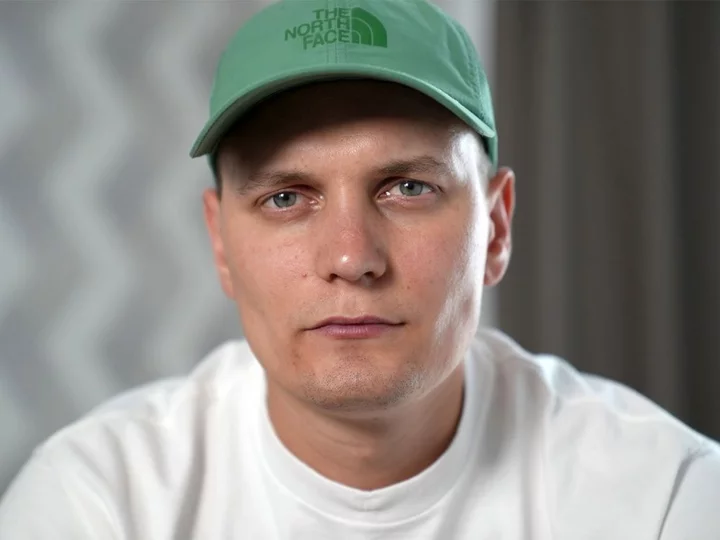
Ukrainian prisoners of war say they were tortured at Russian prison
Former prisoners of war tell the BBC they were abused by Russian guards inside a detention facility.
2023-08-16 12:23

Taxpayer-funded security for DeSantis jumped to $8 million as he launched presidential campaign
Florida taxpayers paid $8.8 million to protect Gov. Ron DeSantis and his family over the past year as he laid the groundwork for and then launched a presidential campaign, according to a new state report.
2023-08-16 08:50
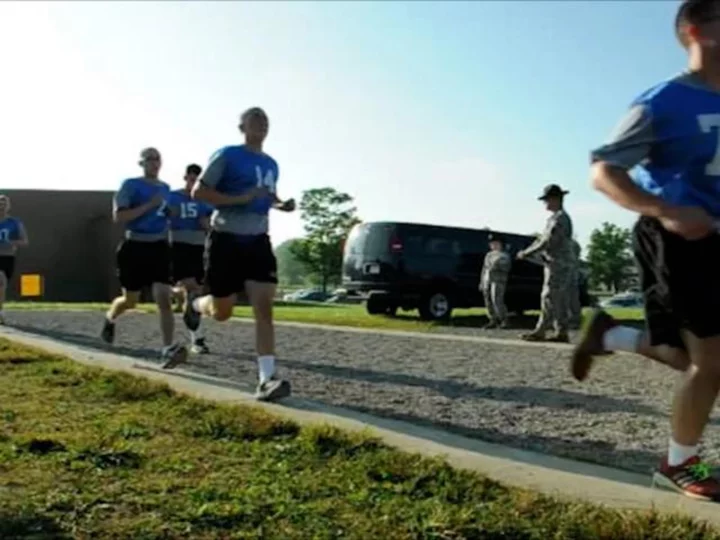
US National Guard soldier dies and another is hospitalized at Mississippi's Camp Shelby after reporting symptoms associated with heat-related injuries
One US National Guard soldier at Mississippi's Camp Shelby died on Friday and another has since been sent to the hospital after both reported symptoms associated with heat injury amid sweltering regional temperatures, the military agency said.
2023-08-15 15:21

Manhattan federal prosecutors drop campaign finance charge against Sam Bankman-Fried in new indictment
Federal prosecutors in Manhattan filed another indictment against FTX co-founder Sam Bankman-Fried Monday, dropping another count against him.
2023-08-15 06:25

Data protection bill: Will India's hard-won information law get weaker?
A crucial new law will make it hard to use the landmark right to information legislation, activists say.
2023-08-15 05:23

Himachal Pradesh: Almost 50 dead as heavy rains hit Indian state
Torrential rains have led to landslides, cloudbursts and heavy flooding in Himachal Pradesh state.
2023-08-15 00:29
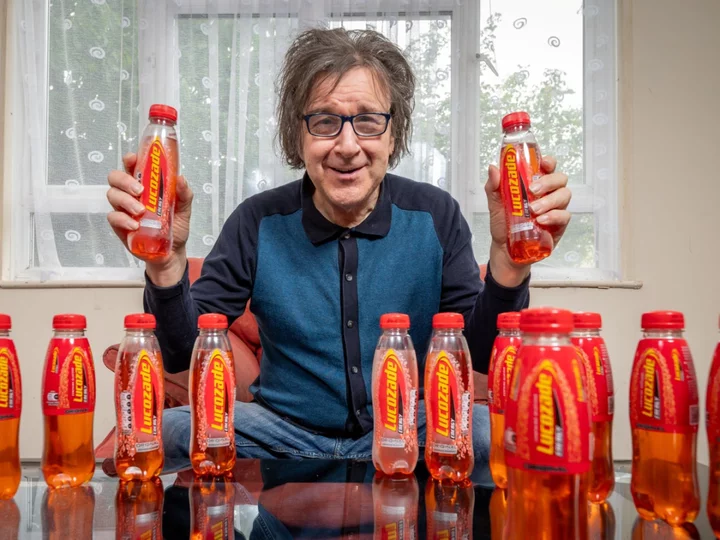
Lucozade addict drinks eight bottles a day and says it’s harder to quit than class-A drugs
A grandfather is addicted to Lucozade despite having three heart attacks, and said it's harder to give up than class-A drugs. Garry Johnson, 65, began drinking coffee aged 12 and loved the caffeine buzz. The now-retired painter and decorator took cocaine and amphetamines in his teens, and after 15 years of on-off drug use went “cold turkey” when his son Sam was born in 1992. Keen to stay energised, he took up drinking 380ml bottle bottles of Lucozade Original, and now gets through eight a day. He's had the habit for 29 YEARS and it currently costs him around £150 a month. And at today's prices, his nearly three decade habit would have cost him more than £42,800. He had three heart attacks between 2012 and 2014 because of a hereditary heart condition, and doctors encouraged him to ditch caffeinated drinks. He gave up dairy and every other form of caffeine - but he still necks more than three litres of Lucozade a day. He said Lucozade is proving harder to give up than class-A drugs - because of the "after effect - like that lovely feeling in your mouth after you eat an expensive bit of chocolate." Garry, from Basildon, Essex, said: "I took cocaine every day but it was a piece of cake to give up - but I'd find it really hard to ever give up Lucozade. "I love it - not just the taste but the affect on my body makes me feel great. If I do go two or three hours without one, I fancy one... God knows how I'd be after two days.” He stopped using cocaine aged 30, when his son Sam, now 31, was born and went cold turkey because being a new dad was "stimulant enough". He started drinking Red Bull but found himself with migraines, and eventually moved onto Lucozade. He initially drank six a day, but has had eight a day for the last seven years. Now he goes to Tesco every day and buys one or two four-packs - depending how many bottles he already has stacked up in the fridge ready to drink. "I've always needed some kind of stimulant and eventually I realised Lucozade is perfect for me," he said. "After my heart attacks they told me to quit the energy drinks but I recently had new heart tests and my results are better than they've ever been. "I guess I've just found one that suits my body." But Garry said he doesn't even want to give up because it's a "part of his identity" - like a person's favourite shirt or their daily breakfast. He justifies the cost because he doesn't drink alcohol or smoke. He said: "£5 a day - that's less than a pint of beer today in some places." If you or someone you know is suffering from alcohol addiction, you can confidentially call the national alcohol helpline Drinkline on 0300 123 1110 or visit the NHS website here for information about the programmes available to you. If you or someone you know is suffering from drug addiction, you can seek confidential help and support 24-7 from Frank, by calling 0300 123 6600, texting 82111, sending an email or visiting their website here. SWNS Read More What I gained (and lost) by walking 10,000 steps each day for 5 months Husband ‘ruins’ dinner because of his wife’s typo: ‘The worst kind of control freak’ John Whaite says he ‘spent time apart’ from fiancé after ‘falling in love’ with Strictly pro
2023-08-14 14:51
